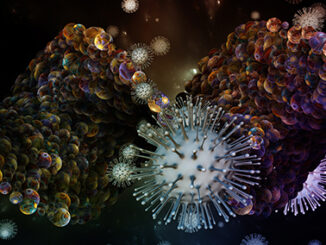Histone mimicry: How a SARS-CoV-2 protein functions as an H3 mimic to disrupt host cell epigenetic regulation
Severe acute respiratory syndrome coronavirus 2 (SARS-CoV-2) was first recognized at the beginning of 2020 and is responsible for the ongoing COVID-19 pandemic. The persistence of the virus has been partly accredited to its effective suppression of host cell responses. As such, continued research in elucidating the dynamics of the SARS-CoV-2 life cycle is essential to facilitate the design and development of novel diagnostics and suitable therapies. Although reports suggest that SARS-CoV-2 can dysregulate the host’s gene expression and innate [more…]



